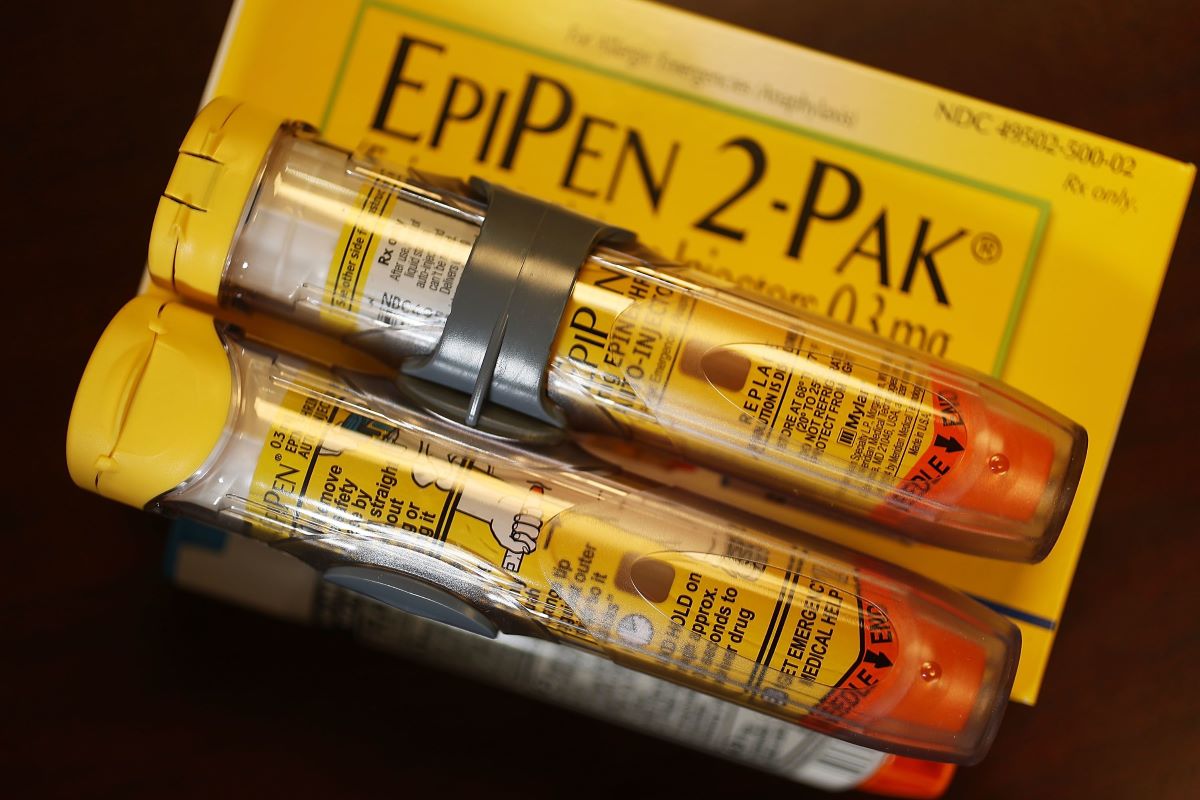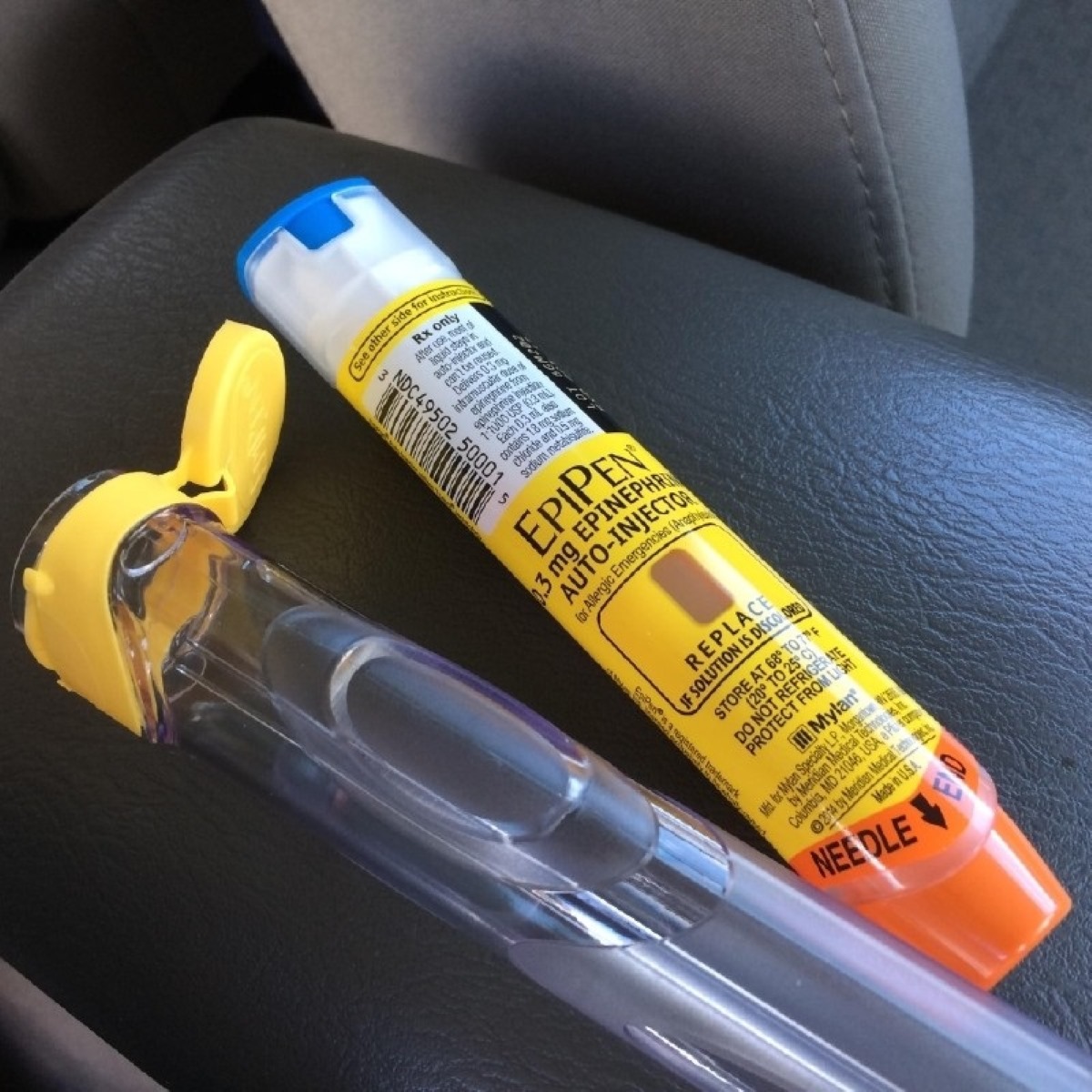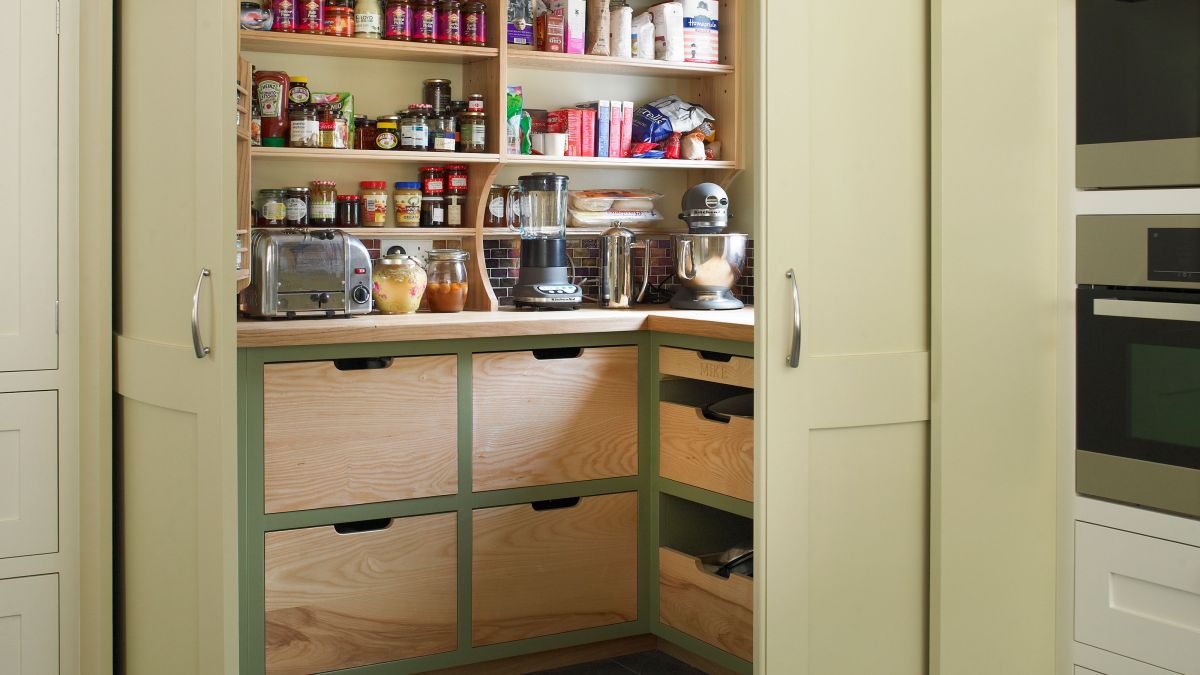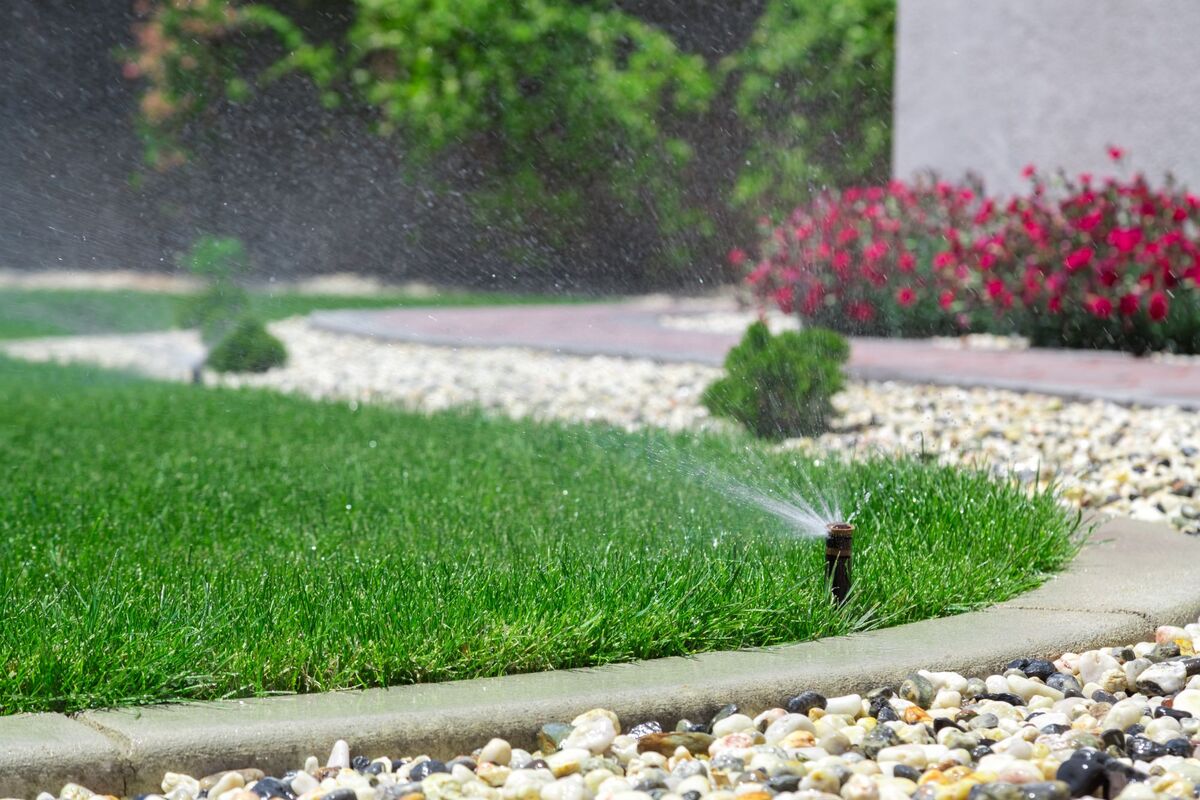

Articles
How To Store Epipen In Hot Weather
Modified: January 5, 2024
Looking for articles on how to store Epipen in hot weather? Discover useful tips and guidelines to keep your Epipen safe and effective during high temperatures.
(Many of the links in this article redirect to a specific reviewed product. Your purchase of these products through affiliate links helps to generate commission for Storables.com, at no extra cost. Learn more)
Introduction
Welcome to the ultimate guide on how to store an Epipen in hot weather. If you or someone you know relies on an Epipen to manage severe allergic reactions, it’s crucial to understand the importance of proper storage, especially during hot summer months. The effectiveness of an Epipen can be compromised by exposure to excessive heat, which can lead to reduced potency and potential failure when it’s needed most.
Epipens contain a life-saving medication called epinephrine, which is sensitive to temperature changes. When exposed to high temperatures, the chemical properties of epinephrine can start to deteriorate, rendering the Epipen less effective or ineffective altogether. Therefore, it is essential to take precautions and store your Epipen correctly in order to ensure its reliability.
In this article, we will explore the proper ways to store an Epipen in hot weather, including the ideal storage temperature, tips to protect the Epipen from heat exposure, common mistakes to avoid, and the signs of Epipen degradation due to improper storage. By following these guidelines, you can confidently manage your Epipen and maintain its effectiveness, even in scorching temperatures.
Key Takeaways:
- Proper storage of Epipen in hot weather is crucial to maintain its potency and reliability, preventing degradation of the life-saving medication due to exposure to high temperatures.
- Avoid common mistakes such as leaving Epipen in a hot car, storing it in the kitchen or bathroom, and failing to protect it during outdoor activities to ensure its effectiveness during an allergic emergency.
Read more: How To Store An Epipen
Why Proper Storage of Epipen in Hot Weather is Important
Proper storage of an Epipen in hot weather is of utmost importance to ensure the medication’s potency and effectiveness when it is needed in an emergency. The Epipen contains epinephrine, a medication that works by constricting blood vessels and opening up the airways, which can save someone experiencing a severe allergic reaction from anaphylaxis.
Exposure to high temperatures can have detrimental effects on the chemical composition of epinephrine, causing it to degrade and lose its effectiveness over time. When an Epipen is stored improperly in hot weather, the heat can accelerate the breakdown of the medication, making it less reliable when you need it the most.
Keeping your Epipen at the correct temperature helps ensure that the medication remains stable and retains its potency. Heat can cause the epinephrine to break down, lose its effectiveness, and potentially become inactive. In the event of an allergic reaction, an improperly stored Epipen may not provide the necessary dosage of epinephrine, putting the individual’s life at risk.
In addition, it’s vital to note that extreme temperatures, whether hot or cold, can also affect the overall quality and integrity of the Epipen itself. When exposed to prolonged heat, the device’s components, including the needle, housing, and auto-injection mechanism, may become damaged or malfunction. This leaves you with not only a potentially ineffective medication but also a device that may fail to administer the epinephrine properly.
By prioritizing the proper storage of your Epipen in hot weather, you are taking proactive steps to ensure its reliability and effectiveness. This, in turn, can give you peace of mind and the confidence to manage severe allergic reactions even under challenging conditions.
Proper Storage Temperature for Epipen
Ensuring the Epipen is stored at the right temperature is crucial to maintain its potency and efficacy. The recommended storage temperature for Epipen is between 15°C and 25°C (59°F and 77°F). Keeping the Epipen within this temperature range helps preserve the stability of the medication and avoids exposure to extreme heat or cold that could impact its effectiveness.
It is important to note that temperatures exceeding the recommended range can lead to the degradation of epinephrine, rendering the Epipen less effective or completely ineffective. When an Epipen is exposed to high temperatures, the epinephrine’s chemical properties can break down, diminishing its potency. On the other hand, storing the Epipen in temperatures below the recommended range can potentially cause the medication to freeze, further compromising its efficacy.
To ensure proper storage temperature for your Epipen, it is crucial to consider the following tips:
- Avoid leaving the Epipen in direct sunlight: Direct sunlight can significantly increase the temperature inside a vehicle or any other location, potentially exceeding the recommended range. Store the Epipen in a cool, shaded place to prevent exposure to sunlight.
- Do not store the Epipen near sources of heat: Keep the Epipen away from heat sources such as radiators, stoves, or heaters, as they can raise the temperature and affect the medication’s stability.
- Consider using a protective case: Utilize an insulated and protective case specifically designed for storing medications, including Epipens. These cases can help to maintain a consistent temperature and protect the Epipen from extreme heat.
- Be cautious when traveling: When traveling, be mindful of the storage conditions for your Epipen. Avoid storing it in checked baggage or leaving it in a hot car trunk. Instead, keep the Epipen with you in a carry-on bag or in a cooler to regulate the temperature.
By following these guidelines and ensuring proper storage temperature for your Epipen, you can maintain the effectiveness and reliability of the medication, giving you peace of mind in case of an allergic emergency.
Tips for Storing Epipen in Hot Weather
When the temperature rises, it’s important to take extra precautions to store your Epipen properly and protect it from the heat. Here are some tips to help you store your Epipen effectively in hot weather:
- Choose the right storage location: Find a cool and dry place to store your Epipen. Ideally, this would be a temperature-controlled environment, such as a room with air conditioning. Avoid storing the Epipen in areas exposed to direct sunlight, like a car dashboard or near windows.
- Consider using a cooling pack: To further protect your Epipen from heat exposure, you can use a cooling pack or ice pack. Place the Epipen inside a small insulated bag or cooler along with the cooling pack to maintain a lower temperature. Make sure the Epipen is not directly in contact with the cooling pack, as extreme cold can also be detrimental to its effectiveness.
- Use a temperature monitoring device: Consider using a temperature monitoring device, such as a digital thermometer or a smart sensor, to keep track of the storage environment. These devices can help you ensure that the temperature remains within the recommended range for your Epipen.
- Regularly check the expiration date: It’s essential to be aware of the expiration date of your Epipen. In hot weather, the medication may degrade faster, so checking the expiration date regularly ensures that you are using a product that is still effective.
- Be cautious during outdoor activities: If you’re participating in outdoor activities during hot weather, make sure to keep the Epipen with you in a protective case. Avoid leaving it in direct sunlight or in a car, as the temperature inside a vehicle can rise quickly and exceed the recommended storage range.
- Plan ahead for travel: If you’re traveling in hot weather, take extra precautions to protect your Epipen. Carry it with you in your carry-on luggage or a small cooler. Avoid storing it in checked baggage, as the cargo hold of an airplane may not have temperature regulation.
By following these tips, you can ensure that your Epipen remains effective and reliable even in hot weather conditions. Proper storage is crucial for maintaining the potency of the medication and ensuring that it functions as intended in an emergency situation.
Store your Epipen in a cool, dark place away from direct sunlight and extreme heat. Consider using a small insulated bag or cooler pack when outdoors in hot weather to help maintain a safe temperature for the medication.
Avoiding Common Mistakes When Storing Epipen in Hot Weather
Proper storage of your Epipen in hot weather is essential to maintain its effectiveness. However, it’s easy to make mistakes that can compromise the integrity of the medication. Here are some common mistakes to avoid:
- Leaving the Epipen in a hot car: One of the most common mistakes is leaving the Epipen inside a parked car, especially during summer months. The temperature inside a car can rise rapidly, exceeding the recommended storage range. Always take your Epipen with you when you leave the car or carry it in a cool or insulated bag.
- Storing the Epipen in the kitchen or bathroom: The kitchen and bathroom are often exposed to fluctuating temperatures due to cooking, showers, and steam. These environments can be too hot or humid for proper Epipen storage. Find a cool, dry, and temperature-controlled place in your home away from these areas.
- Not checking the expiration date: Over time, the effectiveness of epinephrine in an Epipen can diminish. It’s essential to regularly check the expiration date and replace your Epipen before it expires. Discard any expired Epipens safely and obtain a new one.
- Storing the Epipen in direct sunlight: Exposure to direct sunlight can significantly increase the temperature of the Epipen, causing the medication to degrade. Avoid leaving the Epipen in areas exposed to sunlight, such as windowsills or car dashboards. Opt for shaded and cooler locations instead.
- Failing to protect the Epipen during outdoor activities: If you’re heading outdoors during hot weather, don’t neglect the proper protection of your Epipen. Keep it in a protective case or an insulated bag to shield it from excessive heat exposure. Additionally, avoid leaving it in a backpack or bag underneath direct sunlight.
- Not being mindful of proper storage during travel: When traveling to hot destinations, it’s essential to plan ahead when it comes to storing your Epipen. Carry it with you in your carry-on luggage and avoid storing it in checked baggage, as the storage conditions in the cargo hold may not be ideal.
- Using a previously exposed or damaged Epipen: If your Epipen has been exposed to extreme temperatures or has visible signs of damage, do not use it. Exposure to heat or damage can compromise the integrity and effectiveness of the medication. Always have a backup Epipen available in case the primary one is compromised.
By avoiding these common storage mistakes, you can ensure that your Epipen remains effective and reliable in hot weather conditions. Remember that proper storage is crucial to the medication’s potency, which can ultimately save lives during severe allergic reactions.
Read more: How To Store Perfume In Hot Weather
Signs of Epipen Degradation Due to Improper Storage
Improper storage of an Epipen in hot weather can lead to degradation of the medication, reducing its effectiveness in an emergency situation. It’s important to be aware of the signs that indicate the Epipen may have been compromised due to improper storage. Here are some key signs to watch out for:
- Change in color or appearance: Inspect the Epipen closely for any changes in color, clarity, or overall appearance. If you notice discoloration or particles floating in the medication, it could be a sign that the epinephrine has degraded. The solution should remain clear and colorless.
- Lack of expiration date legibility: The packaging of the Epipen includes an expiration date, typically printed on the label. Improper storage can cause the label to fade or become illegible. If you can no longer read the expiration date, it’s best to err on the side of caution and replace the Epipen.
- Excessive heat exposure: If the Epipen has been subjected to prolonged heat exposure, either due to direct sunlight or storage in a hot environment, there is a higher chance that the medication has degraded. Evaluate the temperature conditions it was stored in and consider replacing it to ensure its reliability.
- Damaged or tampered packaging: Inspect the packaging of the Epipen for any signs of damage, such as tears, punctures, or signs of tampering. If the packaging has been compromised, it’s possible that the medication inside may have been exposed to conditions that can affect its efficacy. In such cases, it is best to replace the Epipen.
- Previous activation or use: If the Epipen has been previously activated or used, it’s important to consider its shelf life. Epipens typically have an expiration date or a limited lifespan after activation. After this period, the medication may become less effective and should be replaced.
- No relief of symptoms: If you or someone else administers an Epipen during a severe allergic reaction and there is no relief of symptoms or improvement in condition, it could indicate a compromised Epipen. This could be a result of improper storage or an expired Epipen.
If you notice any of these signs or suspect that your Epipen may have been compromised due to improper storage, it is important to replace it as soon as possible. Always have a backup Epipen available, especially during hot weather, to ensure you have a reliable and effective treatment option in case of an emergency.
Conclusion
Proper storage of an Epipen in hot weather is crucial to maintain its effectiveness and ensure the medication can be relied upon in a life-threatening allergic reaction. High temperatures can cause epinephrine, the active ingredient in the Epipen, to degrade, reducing its potency and potentially rendering it ineffective when it’s needed most.
By following the guidelines outlined in this article, you can ensure that your Epipen remains protected and reliable even during scorching hot weather. Store your Epipen in a cool, shaded place away from direct sunlight and sources of heat. Consider using a cooling pack or insulated bag to maintain the ideal temperature range. Regularly check the expiration date and be mindful of the storage conditions during travel and outdoor activities.
Avoid common mistakes such as leaving the Epipen in a hot car, storing it in the kitchen or bathroom, or failing to protect it during outdoor activities. These mistakes can compromise the integrity of the medication and put your life at risk.
Be aware of the signs of Epipen degradation due to improper storage, such as changes in color or appearance, illegible expiration date, excessive heat exposure, damaged packaging, previous activation or use, and lack of symptom relief during an allergic reaction. If you notice any of these signs, it’s crucial to replace the Epipen as soon as possible.
Remember, your Epipen is a life-saving device, and by properly storing it in hot weather, you can ensure its effectiveness and be prepared to manage severe allergic reactions. Your health and safety depend on reliable and properly stored medication, so take the necessary precautions to protect your Epipen in all situations.
Stay informed, stay prepared, and prioritize the proper storage of your Epipen – it may save a life when it matters most.
Frequently Asked Questions about How To Store Epipen In Hot Weather
Was this page helpful?
At Storables.com, we guarantee accurate and reliable information. Our content, validated by Expert Board Contributors, is crafted following stringent Editorial Policies. We're committed to providing you with well-researched, expert-backed insights for all your informational needs.















0 thoughts on “How To Store Epipen In Hot Weather”